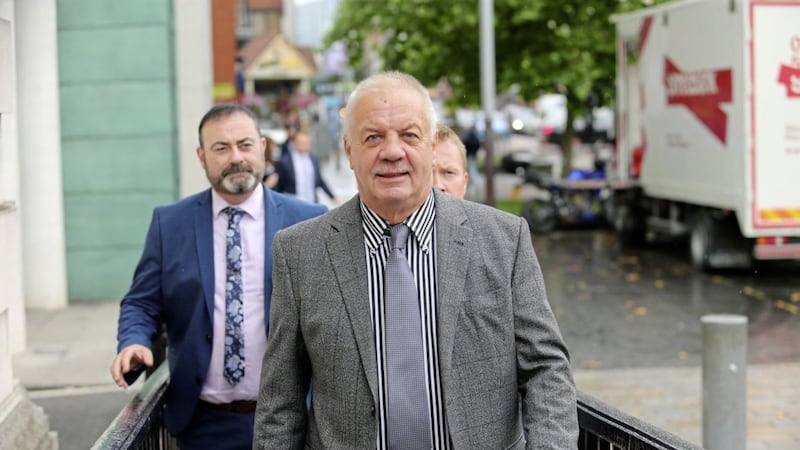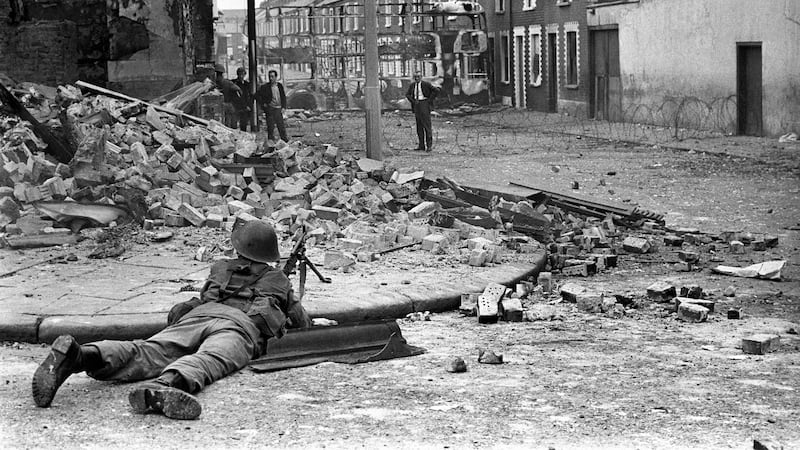Northern Ireland would be "wrecked" by a no-deal Brexit, the High Court heard today.
Counsel for victims campaigner Raymond McCord predicted dire consequences as he urged a judge to deal with all aspects of a challenge to quitting the European Union without an agreement.
Proceedings in Belfast were set to focus only on the potential impact on the Good Friday Agreement and the peace process.
But Ronan Lavery QC claimed they should also deal with Prime Minister Boris Johnson's plans to suspend parliament before the October 31 exit day, rather than having the courts in England and Scotland rule on the lawfulness of that move.
He contended: "The effect of prorogation on the people of Northern Ireland, I don't want to speak in terms that aren't necessarily appropriate for a courtroom, but a no-deal would wreck Northern Ireland.
"Any balanced, sane commentator, politician or man on the street knows that."
Mr Johnson is also facing a Westminster battle with MPs trying to stop a no-deal Brexit.
But as all sides involved in the judicial review acknowledged the unprecedented implications and pressures involved, a member of the public intervened in the hearing to voice his opposition to the court action.
Mr McCord issued judicial review proceedings due to his staunch opposition to Brexit and the potential consequences for relative peace in Northern Ireland.
The Belfast man, whose son Raymond Jr was murdered by loyalist paramilitaries in 1997, praised the judge for the urgency given to the case.
Following the hearing he said: "It's a necessity that Northern Ireland is held to be as important as the rest of the UK in the courts as some of our issues are more concerning.
"It's a strong possibility that we are heading to the Supreme Court with our case.
"Northern Ireland needs to be represented there."
Co Down man Chris Carter, styling himself as Ulster's Independent Voice, told Mr Justice McCloskey he is being unwittingly led astray in the case because it was the Queen who signed off on prorogation.
"If it goes on it's going to turn into an act of high treason against Her Majesty," he claimed.
Mr Carter, who previously mounted an unsuccessful challenge to the smoking ban in Northern Ireland, went on: "The dispute is not about what Boris Johnson has done, the dispute is about what Her Majesty has done."
Amid the continued political uncertainty, all three legal challenges to the UK Government's Brexit strategy are expected to go to the Supreme Court in London, with a hearing penciled in for September 17.
Stressing that the case in Belfast will now have to be determined much sooner than the original September 16 listing date, Mr Justice McCloskey said it would be "almost miraculous" to have all steps completed coherently in such a tight timescale.
Tony McGleenan QC, representing the Government and Prime Minister, went further.
"It seems almost impossible," he said.
"If anything is to be achieved in this jurisdiction it would have to be rationalised, with a specific degree of focus."
However, Mr Lavery insisted Northern Ireland's High Court should not be left behind in dealing with the prorogation point.
He also suggested nighttime or weekend hearings in a bid to deal with the case.
"These are unprecedented times, a constitutional challenge, particularly in Northern Ireland," he submitted.
The barrister argued that his client's case cannot be separated out, without everything about withdrawal from the EU impacting on the region.
"There's no reason why we should in this jurisdiction defer to Scotland or England and Wales, particularly when the only (form of) government left in Northern Ireland is the courts," he said.
"There's no Assembly, there's no Executive; in terms of representing the view of the government of Northern Ireland that can only come from the courts in constitutional terms."








